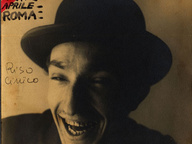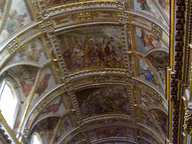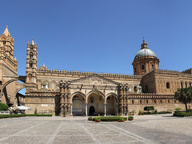Luciano Vistosi Sculptor
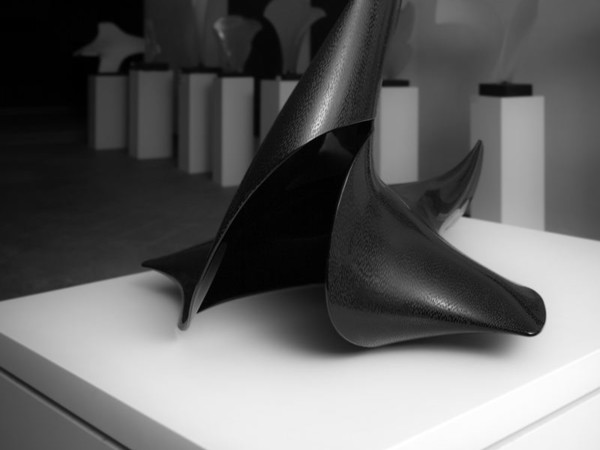
Luciano Vistosi, Colomba morente, 1981
From 09 Febbraio 2015 to 17 Gennaio 2016
Venice
Place: Glass Museum
Address: Fondamenta Giustinian 8, Murano
Times: 10am-05pm; from 1st April 10am-06pm
Responsibles: Chiara Squarcina
Ticket price: intero € 10, ridotto € 7.50, scuole € 4
Telefono per informazioni: +39 041 739586
E-Mail info: museo.vetro@fmcvenezia.it
Official site: http://museovetro.visitmuve.it
“…At home, I rarely heard anyone speak of sculpture: we would only talk about painting. And yet, the forms were there: they were created every day in the furnace. I might say that I have always thought three-dimensionally, in a sculptural way”. (Luciano Vistosi, 2003)
Rounded, sinuous sculptures devoid of sharp angles; shapes that appeal for the changing plays of light and also for their tactile qualities; works made by modelling the blown glass with rapid, firm movements, balancing the blown glass while gravity draws it gradually down, and giving form to the creative idea in three minutes at the most; or sculptures made by chiselling and smoothing the glass as though it were marble.
They are creations that astonish for their poetry and innovation; they are moving sculptures.
For the “Luciano Vistosi, sculptor” exhibition from February 9 to May 30, 2015 – the first temporary exhibition to be held in the new spaces of the Conterie on the occasion of the re-opening of the Museo del Vetro di Murano (Murano Glass Museum) – 30 works have been chosen by the great sculptor, who died in 2010 and was a significant figure in recent Italian art. The exhibition will display only black and white crystal, in many cases engraved or scratched.
It was in the glass manufactory of his father that Luciano Vistosi (Murano 1931 – 2010 ) learned to pull and raise the incandescent mass and transform it into an eagle, a dove, a farming girl, a female nude; or nightmares.
Following his father’s death in 1952, Vistosi founded the new Vetreria Vistosi with his uncle Oreste and brother Gino with the aim of making products linked to the latest developments in design. He also involved some leading firms, such as Aulenti, Sottsass, Magistretti, Zanuso, and Peduzzi. He concentrated above all on lighting, producing new products, including some famous series of wall sconces. But what appealed most to him was sculpture.
In his artistic development as “sculptor”, Vistosi tested various techniques other than blown glass. Some works are sculpted from enormous blocks of rough glass in line with the “art of removal” typical of sculpting marble. These blocks were obtained using industrial glass, as in the case of his famous project for the Accademia Bridge. This was in the mid-1980s. At that same time, the artist was making houses and skyscrapers of transparent glass measuring up to a metre high. Architectural sculptures boasting a strong appeal thanks to their geometric perfection and underlying desire to open the way to a more liveable city, they were shown with sea-green crystal works and randi in the artist’s workshop at Murano, just a short distance from the Museo del Vetro.
Some of Italy’s leading photographers, including Ugo Mulas, Gianni Berengo Gardin, Paolo Monti and Franco Fontana have, through their cameras, interpreted the innovative nature of Luciano Vistosi’s work: a dialogue between sculpture and photography that was important for the artist, as he himself used cameras to seek out lines, forms, shapes. Inspirations for new creations.
Rounded, sinuous sculptures devoid of sharp angles; shapes that appeal for the changing plays of light and also for their tactile qualities; works made by modelling the blown glass with rapid, firm movements, balancing the blown glass while gravity draws it gradually down, and giving form to the creative idea in three minutes at the most; or sculptures made by chiselling and smoothing the glass as though it were marble.
They are creations that astonish for their poetry and innovation; they are moving sculptures.
For the “Luciano Vistosi, sculptor” exhibition from February 9 to May 30, 2015 – the first temporary exhibition to be held in the new spaces of the Conterie on the occasion of the re-opening of the Museo del Vetro di Murano (Murano Glass Museum) – 30 works have been chosen by the great sculptor, who died in 2010 and was a significant figure in recent Italian art. The exhibition will display only black and white crystal, in many cases engraved or scratched.
It was in the glass manufactory of his father that Luciano Vistosi (Murano 1931 – 2010 ) learned to pull and raise the incandescent mass and transform it into an eagle, a dove, a farming girl, a female nude; or nightmares.
Following his father’s death in 1952, Vistosi founded the new Vetreria Vistosi with his uncle Oreste and brother Gino with the aim of making products linked to the latest developments in design. He also involved some leading firms, such as Aulenti, Sottsass, Magistretti, Zanuso, and Peduzzi. He concentrated above all on lighting, producing new products, including some famous series of wall sconces. But what appealed most to him was sculpture.
In his artistic development as “sculptor”, Vistosi tested various techniques other than blown glass. Some works are sculpted from enormous blocks of rough glass in line with the “art of removal” typical of sculpting marble. These blocks were obtained using industrial glass, as in the case of his famous project for the Accademia Bridge. This was in the mid-1980s. At that same time, the artist was making houses and skyscrapers of transparent glass measuring up to a metre high. Architectural sculptures boasting a strong appeal thanks to their geometric perfection and underlying desire to open the way to a more liveable city, they were shown with sea-green crystal works and randi in the artist’s workshop at Murano, just a short distance from the Museo del Vetro.
Some of Italy’s leading photographers, including Ugo Mulas, Gianni Berengo Gardin, Paolo Monti and Franco Fontana have, through their cameras, interpreted the innovative nature of Luciano Vistosi’s work: a dialogue between sculpture and photography that was important for the artist, as he himself used cameras to seek out lines, forms, shapes. Inspirations for new creations.
SCARICA IL COMUNICATO IN PDF
COMMENTI

-
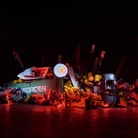 Dal 27 marzo 2025 al 27 luglio 2025
Milano | Pirelli HangarBicocca
Dal 27 marzo 2025 al 27 luglio 2025
Milano | Pirelli HangarBicocca
-
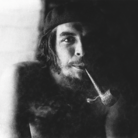 Dal 27 marzo 2025 al 30 giugno 2025
Bologna | Museo Civico Archeologico
Dal 27 marzo 2025 al 30 giugno 2025
Bologna | Museo Civico Archeologico
-
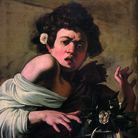 Dal 27 marzo 2025 al 20 luglio 2025
Firenze | Villa Bardini
Dal 27 marzo 2025 al 20 luglio 2025
Firenze | Villa Bardini
-
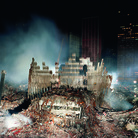 Dal 25 marzo 2025 al 24 agosto 2025
Brescia | Museo di Santa Giulia
Dal 25 marzo 2025 al 24 agosto 2025
Brescia | Museo di Santa Giulia
-
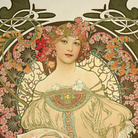 Dal 22 marzo 2025 al 20 luglio 2025
Ferrara | Palazzo dei Diamanti
Dal 22 marzo 2025 al 20 luglio 2025
Ferrara | Palazzo dei Diamanti
-
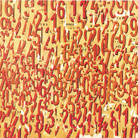 Dal 22 marzo 2025 al 08 giugno 2025
Venezia | Ca’ Pesaro – Galleria Internazionale d’Arte Moderna
Dal 22 marzo 2025 al 08 giugno 2025
Venezia | Ca’ Pesaro – Galleria Internazionale d’Arte Moderna
